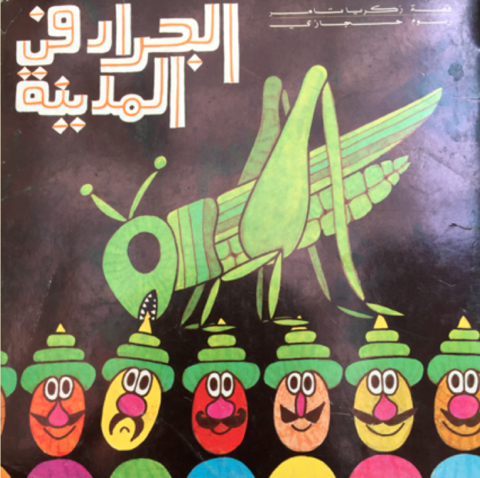Event time:
Wednesday, November 6, 2019 - 4:00pm to 5:00pm
Location:
McClellan Hall, Room 101
Old Campus
Event description:
Yale Agrarian Studies Program Fellow Samuel Dolbee presents chapter four, “Borders of Cultivation,” from his current book project, Locusts of Power: Empire, Environment, and Borders in the Modern Middle East, 1858-1939.
This chapter considers the formation of the post-Ottoman states of British Iraq, French Syria, and Republican Turkey in the Jazira, the region stretching between the Tigris and the Euphrates at the foot of the Anatolian plateau. A rejoinder to histories narrated strictly through the pen strokes of Europeans or nationalist agitation in capital cities, the chapter argues that the borders between these states took root in connection with an expansion of sedentary agriculture in the region, such that borders on the map did not hinder motion in this interconnected region so much as fields of wheat and the chemical insecticides increasingly aimed at locusts. To make this argument about the changing notion of being human on soils newly imagined as Iraqi, Syrian, or Turkish, the chapter focuses on somewhat unconventional characters, among them Armenian children who had survived the genocide by living with nomads in the Jazira and, in some cases, decided to stay with them and their camels; French Syrian and Turkish bureaucrats arguing over whether locusts afflicting their respective territory were Syrian or Turkish born; a Russian émigré turned knighted locust expert who became so close with a Turkish entomologist that he named a locust after his insect friend, all the while grumbling about the impossibility of international cooperation on questions of locust control; and Arabic-speaking nomads who—long compared to locusts themselves—fell victim to the same kinds of chemical pesticides newly aimed at the voracious insects in this period.
The broader book project—entitled Locusts of Power: Empire, Environment, and Borders in the Modern Middle East, 1858-1939—explores the shadow geography of the arid region known as the Jazira and the intricate choreography of humans and animals it structured in the late Ottoman Empire and after. Never a stand-alone Ottoman province or a post-Ottoman nation-state, the dry but fertile space haunted the edges of larger provincial or national entities, a coherent region in which locusts, nomads, and refugees moved. From the center (and from the numerous scholarly accounts that have adopted this perspective), these groups appeared marginal, but in fact they derived power from their presence on the margins, which they adeptly used to divide and rule, in a way, the Ottoman Empire. In this respect, the project troubles the focus of much scholarly and popular histories of the Middle East, which present World War I and the Sykes-Picot Agreement as emblematic of the emergence of borders—and, it is often implied, today’s problems—tout court. Locusts of Power suggests how Ottoman bureaucrats, nomads, and locusts alike had used provincial borders before Sykes-Picot to carve out power on the edge, and moreover how after Sykes-Picot it was not simply the lines on the map that changed the region but rather a shifting political economy of sedentary agriculture. The book manuscript concludes with an epilogue connecting the challenges of managing this space in the past with its status today, as it remains among the poorest yet most agriculturally productive regions of the borderlands stretching between Iraq, Syria, and Turkey. It was only several years after the collapse of intensive agriculture in the region in 2008 thanks to catastrophic drought and subsidy cuts to fuel and fertilizers that ISIS swooped in, uniting a large swath of Iraq and Syria that had long fit uncomfortably with both Ottoman provinces and post-Ottoman nation-states. The project thus reconceives of the empire-to-nation story in the Middle East through the entangled motion of nomads, refugees, and locusts as a way of revealing a longer history of agrarian development, state violence, and popular resistance. Taking borders as an object of study rather than an unquestioned container of history, I suggest how a changing vision of what it meant to be human underpinned the emergence of distinct Iraqi, Syrian, and Turkish territories in this space.
Samuel Dolbee is a Fellow at the Program in Agrarian Studies at Yale. He was previously at Harvard University’s Mahindra Humanities Center and Brandeis University’s Crown Center for Middle East Studies. He completed his PhD in 2017 at New York University in History and Middle Eastern & Islamic Studies.
This event is part of the Yale Environmental History Fall 2019 Workshop Series.
To attend and request a copy of the pre-circulated chapter manuscript, please email environmentalhistory@yale.edu.
